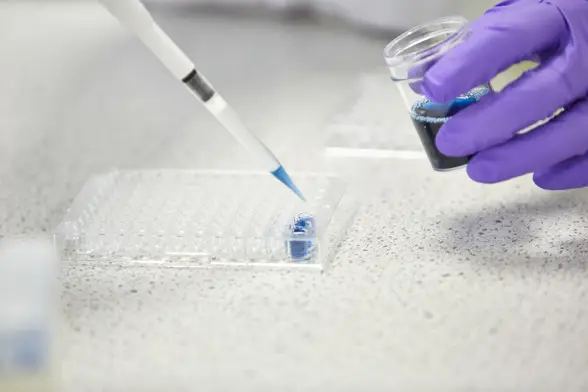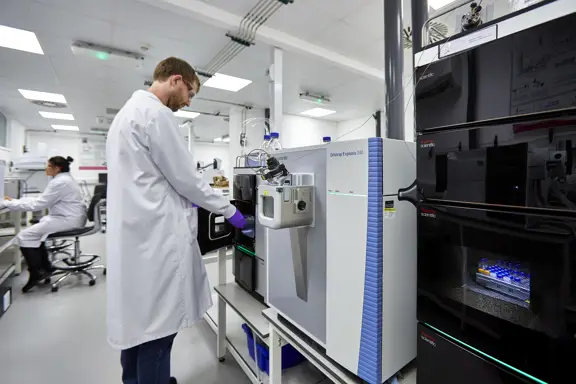Host cell proteins (HCP) are process related impurities that are produced by a host organism during the manufacturing of bio-products. While purification can reduce HCP levels, complete removal is not possible. This makes it crucial to monitor and control these impurities throughout the entire product lifecycle to ensure product safety, efficacy and ultimately for regulatory compliance.
We understand the importance ensuring products aren’t compromised in safety, stability and immunogenicity, which is why, utilising our expertise and technology, we carry out analysis to and beyond the widely accepted regulatory HCP limit of 1-100ppm.
Our reliable data and quick turnarounds provide timely, accurate data, arming clients with the knowledge to safeguard product processes from exceeding regulated HCP levels.



The United States Pharmacopeia (USP) has drafted a new general Chapter 1132.1 ‘Residual Host Cell Protein Measurement in Biopharmaceuticals by Mass Spectrometry’, expanding the current Chapter 1132.
Highlighted within the chapter are the benefits of MS when used as an orthogonal method alongside the conventional ELISA and other immuno-based methods.

RSSL carries out the conventional ELISA method for measuring HCPs, which quantifies the total protein by binding specific antibodies as well as MS which has gained popularity in recent years for identifying and quantifying HCP.
ELISA is the conventionally accepted method for quantification of total HCPs. It provides high-throughput quantitative data and is essential to deliver critical top-level information for regulatory purposes. ELISA methods quantify the immunogenic host cell proteins present in the sample by using generic or process specific antibodies depending on the development stage of the product.
RSSL offer fit for purpose ELISA HCP customer solutions throughout the product life cycle through well-established partnerships with leading antibody suppliers. Our experts will support you with troubleshooting, method development, transfer, validation and GMP batch release.


MS has gained popularity over the past decade for its unique ability to identify and quantify individual host cell proteins without the requirement for specific antibodies. This ability provides a universal platform for improved understanding of the HCP profile of bio-product and the clearance pattern.
Today MS is recognised as an invaluable orthogonal method to ELISA in the analysis of HCPs. LC MS methods offers advantages in that it can provide the identifications and quantify of individual proteins including non-immunogenic proteins which may not be detected by ELISA. The complexity of the MS data generated, and their interpretation render this approach a specialised and niche method.
RSSL offer HCP profiling by MS at different stages of the manufacturing process using high resolution accurate mass spectrometry through proteomic approaches. Individual HCPs of interest can be monitored throughout manufacturing by targeted quantification using isotopically labelled internal standards.
Our extensive experience in both ELISA, Mass Spectrometry (targeted and untargeted) and Western Blot provide fit for purpose solutions for our customers including identification, quantification, targeted analysis and monitoring of the purification process and ELISA HCP coverage characterisation.
With a proven track record in method development, validation, investigative studies and GMP batch release testing, our team of expert scientists excel in navigating the complexities of HCP analysis. By adopting a comprehensive approach to monitoring and controlling HCPs, we support our customers to optimise their purification process and help ensure products meet safety and regulatory needs in an ever-evolving regulatory industry.